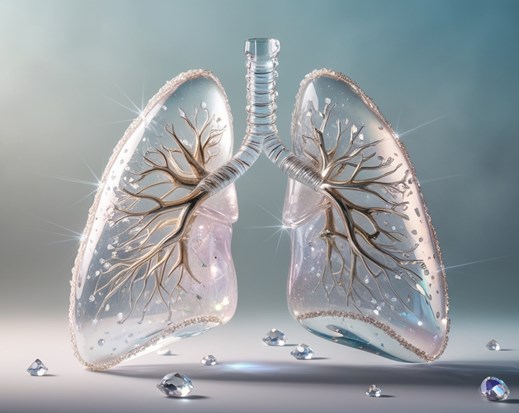



Pneumonia is a form of acute respiratory infection that affects the lungs, and the lungs form from small bags filled with air when a healthy person breathes. When one gets pneumonia, one's lungs are filled with pus and liquid substances, making breathing painful.
It causes a cough with fever, chills, and difficulty breathing, a variety of organisms, including bacteria, viruses, and fungi, can cause pneumonia.
The risk of pneumonia ranges from mild to extremely dangerous and potentially life-threatening. It is more harmful for certain groups such as infants, the elderly, and people with health problems.
Symptoms
Symptoms of pneumonia range from mild to severe, based on factors such as the type of germ that causes infection, age, and general health status.
Symptoms of pneumonia:
1-Chest pain when breathing or coughing
2-Cough accompanied or unaccompanied by mucus
3-severe rising body temperature.
4-Tremor and headache
5-Muscle or joint pain
6-Nausea, vomiting or diarrhea
7-Self-distress
8-Anorexia and weight loss
Risk factors:
- Elderly persons over 65 years of age
- Children under 2 years of age
- People receiving chemotherapy or immunosuppressants
- Diabetes and heart failure patients
- Smoking: Smoking destroys the body's natural defenses against bacteria and viruses
- People living with HIV/AIDS
- People who have undergone organ transplants
Reasons
- Bacteria are the most common cause of bacterial pneumonia and may occur on their own or after a cold or flu.
- Fungi This type of pneumonia is often common among those with chronic health problems or impaired immune systems, and the fungi that cause it can be found in soil or bird droppings.
- Viruses are the most common cause of pneumonia among children under the age of 5. Symptoms of viral pneumonia are usually mild. But it may even become dangerous in some cases.
- Pneumonia acquired during hospital stay, hospital-acquired pneumonia can be a risk since the bacteria causing it may be more resistant to antibiotics
Prevention
Get a flu vaccine every year, because having the flu can lead to pneumonia.
Pneumonia vaccine is recommended for all children children under two years of age and adults 65 years of age or older
Practice deep breathing exercises
follow the hygiene rules well: wash your hands regularly or use a hand sanitizer containing alcohol
Refrain from smoking as it destroys the lung's natural defenses against respiratory infection
Diagnosis of pneumonia
1- Chest X-ray
2- CT scans on the lung
3- measure lung function
4- Examine samples of sputum, blood, and urine to identify the type of microbe that causes pneumonia
When does acute pneumonia turn chronic?
The patient recovers and symptoms usually fade within a few days, unless:
Repeated exposure of the infected to thrills again
- If the patient does not pay attention to these symptoms and treat them as soon as possible, the situation may turn into chronic pneumonia.
What are the complications of neglecting pneumonia treatment?
- Lung abscess empyema
- Irreparable pulmonary fibrosis is the most serious complication of pneumonia
- This fibrosis in severe cases may result in heart impact, respiratory failure, and even death
When to visit a doctor
Visit your doctor if you have difficulty breathing, chest pain, fever, or a persistent cough.
Read Also:
Irritable Bowel Syndrome Treatment